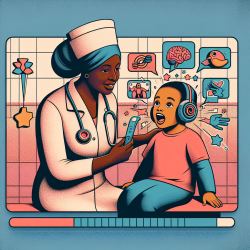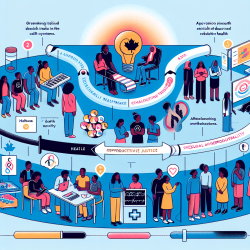As practitioners in the field of speech-language pathology, our primary goal is to foster positive communication environments for all children, especially those who stutter. A recent study titled "A cluster randomised trial of a classroom communication resource program to change peer attitudes towards children who stutter among grade 7 students" provides valuable insights into how we can address negative peer attitudes in classroom settings. Here, we will explore the outcomes of this research and how they can be applied to improve your practice.
Understanding the Study
The study conducted a cluster randomised controlled trial (RCT) in ten primary schools in the Western Cape, South Africa. The primary objective was to assess the impact of the Classroom Communication Resource (CCR) intervention on peer attitudes towards children who stutter (CWS) among grade 7 students. The intervention included activities such as social stories, role-playing, and discussions aimed at promoting positive attitudes and reducing teasing and bullying.
Key Findings
Despite the well-structured intervention, the study found no statistically significant differences in peer attitudes towards CWS between the intervention and control groups at six months post-intervention. The researchers suggested that the time frame might have been too short to observe meaningful changes in attitudes. Here are the key findings:
- No significant change in global Stuttering Resource Outcomes Measure (SROM) scores.
- No significant differences in the subscales: Positive Social Distance (PSD), Social Pressure (SP), and Verbal Interaction (VI).
- No significant subgroup effects based on school quintile (lower vs. higher).
Implications for Practice
While the study did not find significant changes, it provides a foundation for further exploration and refinement of classroom-based interventions. Here are some practical steps you can take based on the study's insights:
- Extend the Time Frame: Consider implementing the CCR intervention over a longer period. Attitudinal changes may require more time to manifest.
- Incorporate Observational Data: Supplement questionnaires with observational data to capture changes in behavior and attitudes more comprehensively.
- Engage Teachers: Provide ongoing training and support for teachers to reinforce positive communication practices in the classroom.
- Tailor Interventions: Customize the intervention to fit the cultural and contextual needs of your specific classroom environment.
Encouraging Further Research
The study highlights the need for further research to validate and improve the CCR intervention. As practitioners, we can contribute to this body of knowledge by:
- Conducting Longitudinal Studies: Implement and evaluate the intervention over an extended period to assess long-term impacts.
- Exploring Alternative Measures: Develop and validate new tools to measure peer attitudes more sensitively.
- Collaborating with Researchers: Partner with academic institutions to design and conduct rigorous studies that address the limitations identified in this research.
By integrating these strategies into our practice and encouraging further research, we can create more inclusive and supportive environments for children who stutter.
To read the original research paper, please follow this link: A cluster randomised trial of a classroom communication resource program to change peer attitudes towards children who stutter among grade 7 students.










